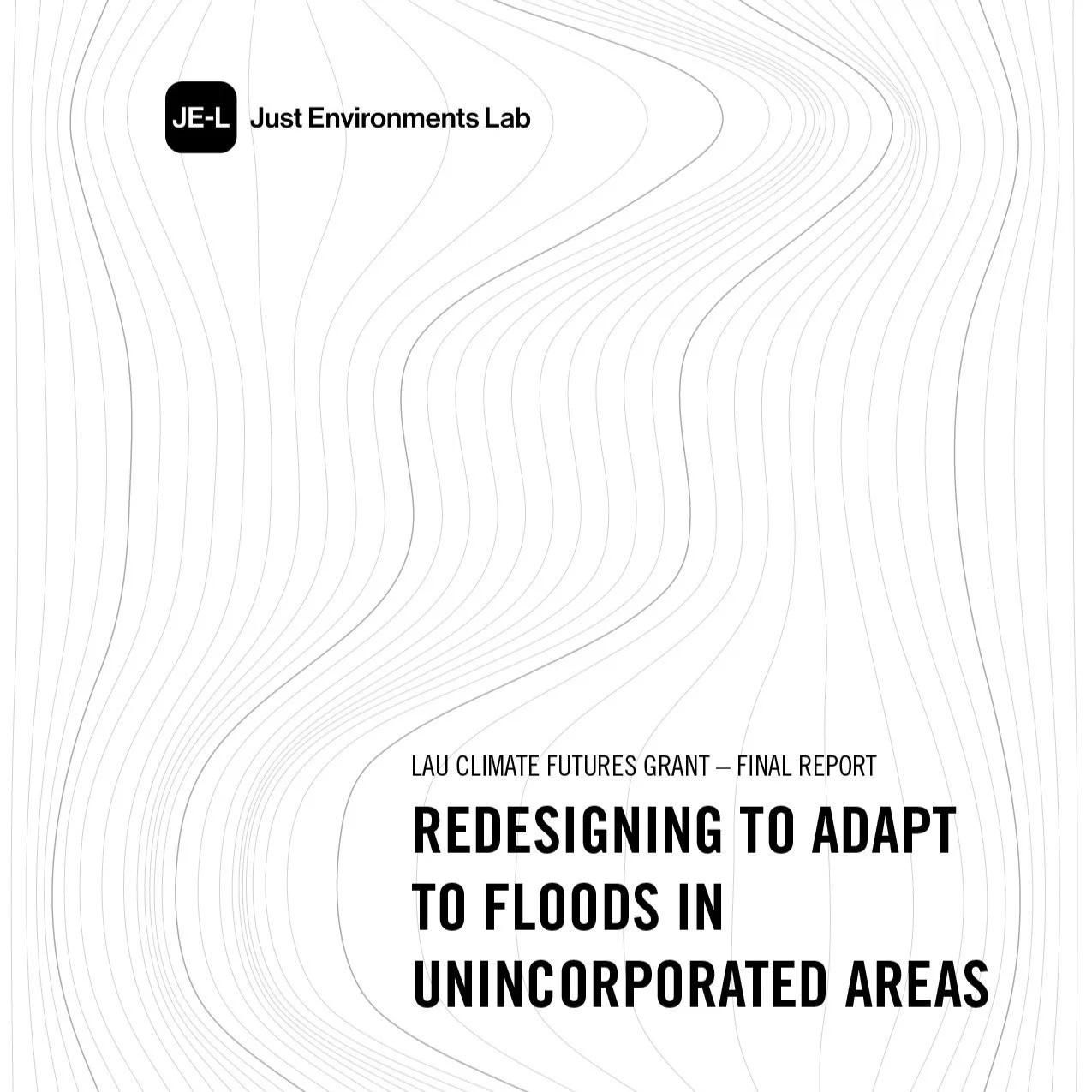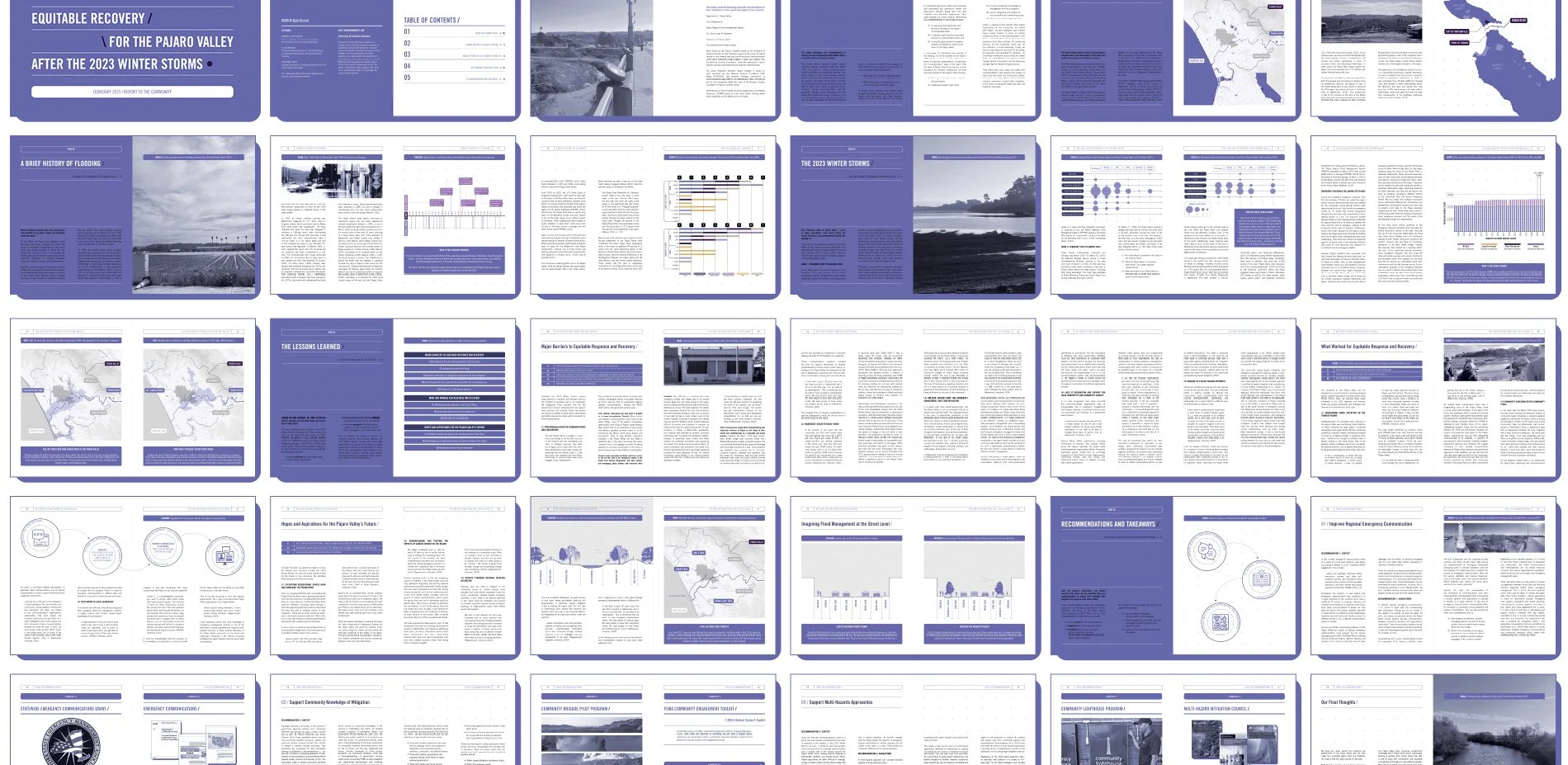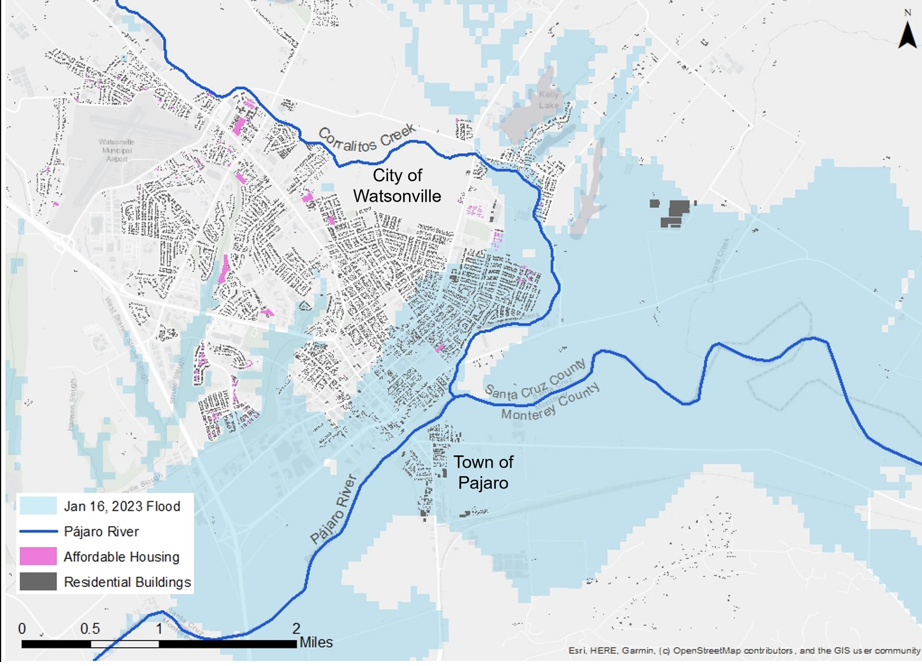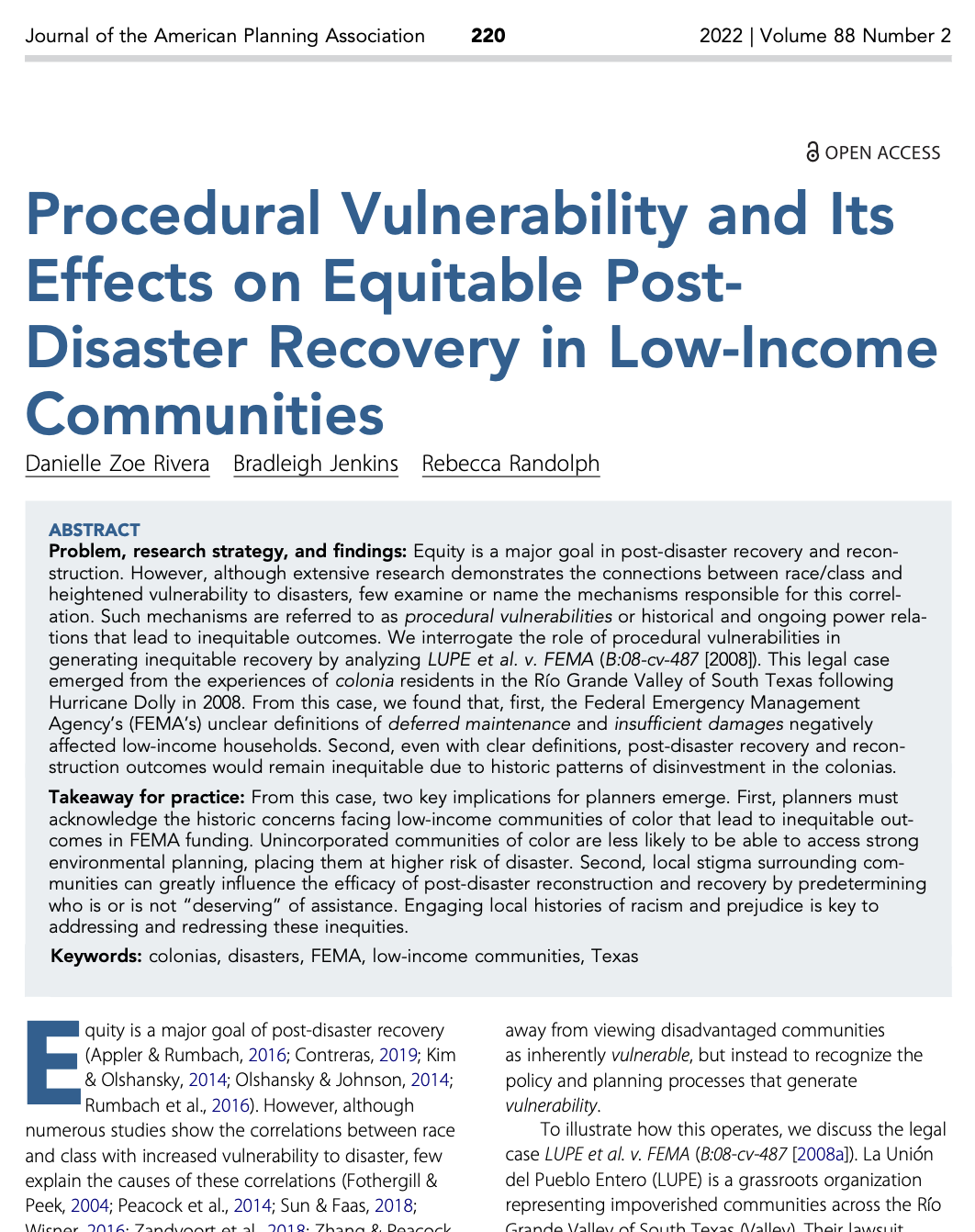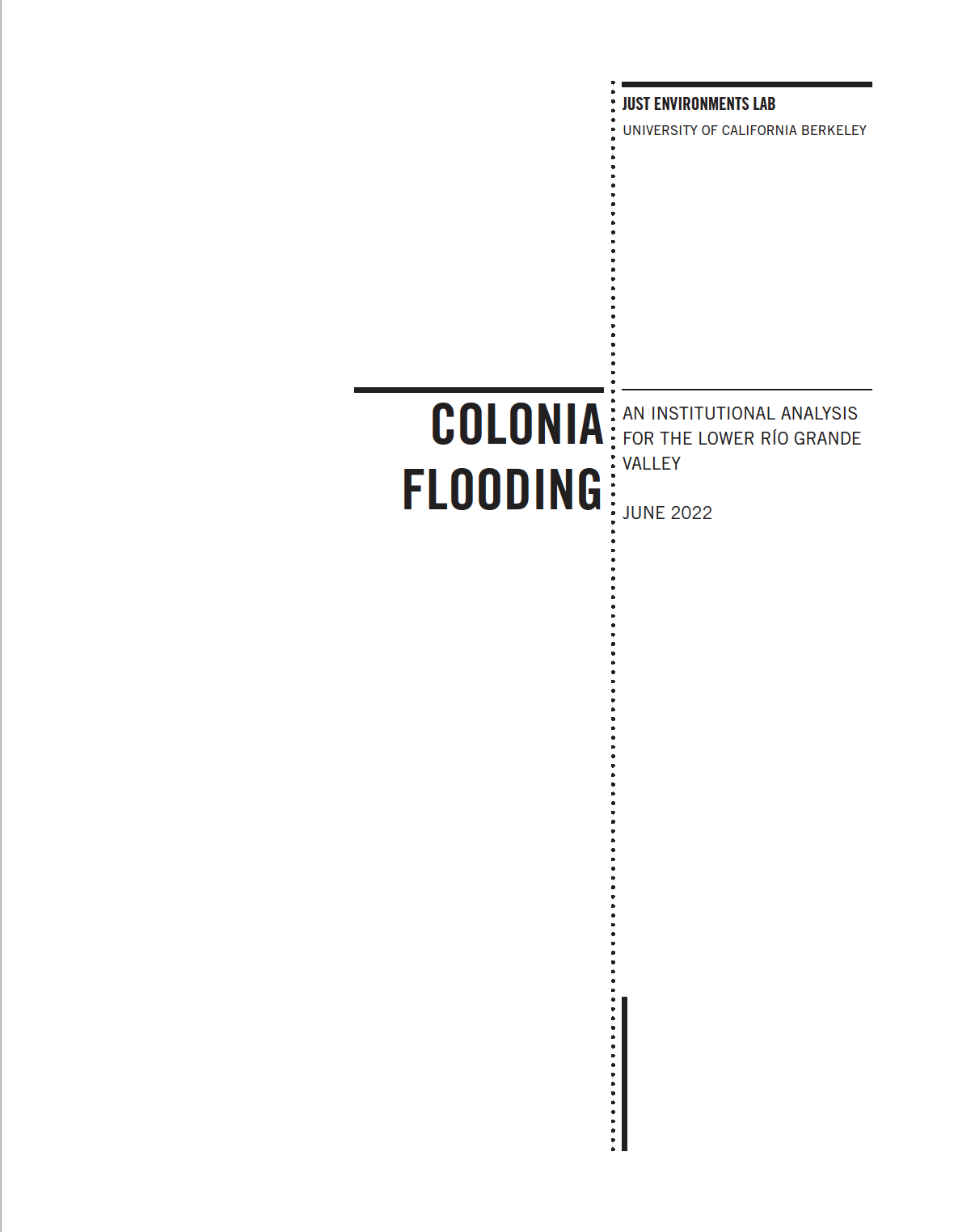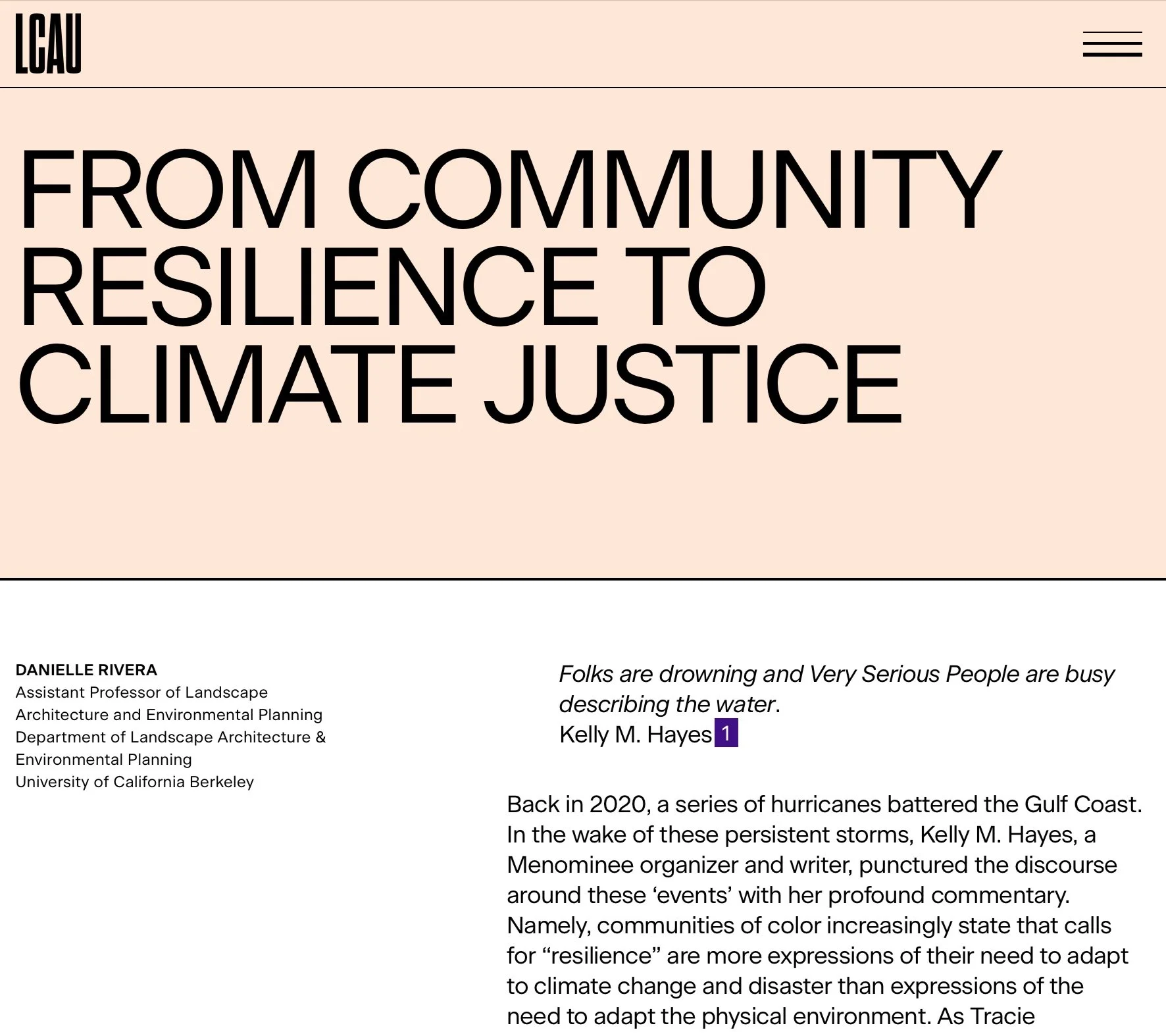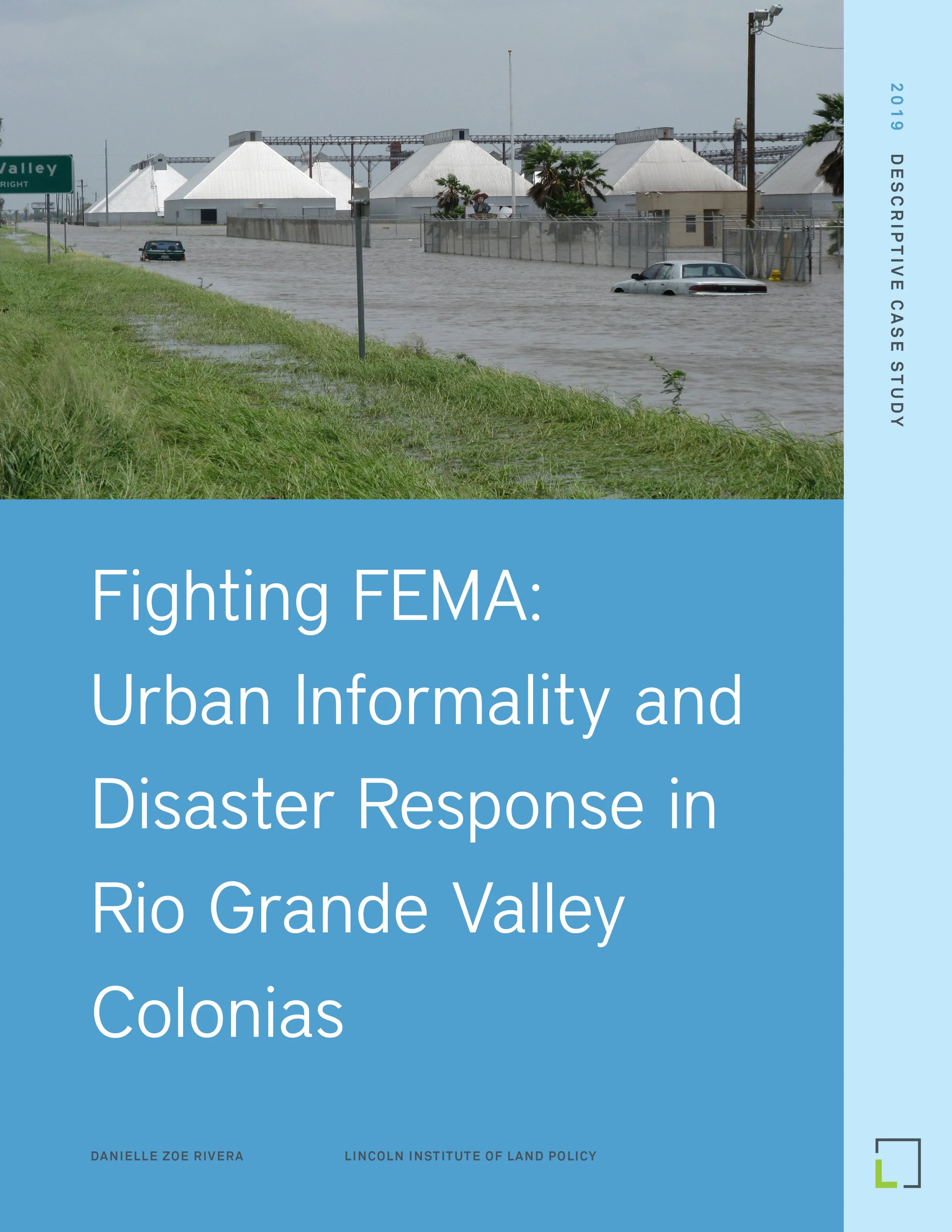– Research
Just Environments Lab’s (JE-L) main objective is to place justice and equity first in all discussions of the future of our environment. Without centering justice and equity, visions of the future remain systemically unjust. We seek to understand a past, present, and future of our environment rooted in the struggle for environmental freedom.
To accomplish this, JE-L explores and leverages a wide body and history of interdisciplinary theories. We resist overly-centering one theoretical approach as our emphasis is on community science and its ability to challenge and transform hegemonic theories.
Our dynamic, ever-transforming list of research clusters helps to identify major areas of concern as expressed by the communities we serve.
– Our Research Areas
-
Environmental justice is the core framework pervading all of our work. Environmental justice, here, refers to the ability of individuals and communities to live free of undue environmental degradation, disruption, and displacement. Elsewhere, this idea has been referred to as “environmental freedom” (see Ranganathan, 2022). At JE-L, we examine how environmental infrastructure and resources, in particular, are inequitably designed and distributed across regions. Mainly in this research area, we push against the inequitable use of “resilience” by asking: who is (perpetually) forced to be resilient?
-
Climate change and climate-induced disasters are not striking communities evenly (or equitably) across the world. Instead, historic and contemporary environmental injustices and racism have manufactured uneven landscapes of risk. Here, we examine climate justice movements in low-income communities exposing inequities entrenched in existing approaches to climate mitigation and adaptation. Due to the imminent threats of climate change, which often compound preexisting environmental injustices, we see planning for climate change as fundamentally concerned with racial justice, as opposed to hegemonic discourses of climate change that de-center the concerns of those most impacted.
-
Our efforts to build environmental justice + freedom and climate justice increasingly intersect with a third, emerging area of focus: disaster justice. As a newly-emerging concept and movement, JE-L seeks to ascertain the meaning(s) and implication(s) of “disaster justice.” Thus, this area of our research is the fastest growing and most intense of our foci.
– Major Reports + Publications
– Research Outputs
Peer-Reviewed Articles
[Click the titles to visit publication page]
Rivera, D. Z. (2025). Designing Through Social Critique: A Studio Framework for Undoing Extractivist Engagement Practices. Journal of Architectural Education, 79(1), 248-257.
Coolsaet, B., Agyeman, J., Kashwan P., Rivera, D. Z., Ryder, S., Schlosberg, D., & Sultana, F. (2024). Acknowledging the Historic Presence of Justice in Climate Research. Nature - Climate Change, 15(2), 121.
Rivera, D. Z. (2023). Unincorporated and Underserved: Critical Stormwater Infrastructure Challenges in South Texas Colonias. Environmental Justice.
Rivera, D. Z. & Hendricks, M.* (2022). Municipal Undergreening: Framing the Planning Challenges of Implementing Green Infrastructure in Marginalized Communities. Planning Theory & Practice.
*Dr. Hendricks directs the Stormwater Infrastructure Resilience and Justice (SIRJ) Lab at the University of Maryland.
Rivera, D. Z., Jenkins, B., & Randolph, R. (2022). “Procedural Vulnerability and its Effects on Equitable Post-Disaster Recovery.” Journal of the American Planning Association.
Rivera, D. Z. (2022). “Disaster Colonialism: A Commentary on Disasters Beyond Singular events to Structural Violence.” International Journal for Urban and Regional Research.
Rivera, D. Z. (2021). Design in Planning: Reintegration Through Shifting Values. Urban Planning.
Rivera, D. Z. (2020). “The Community Union Model of Organizing in Rio Grande Valley Colonias.” Environment and Planning C.
Rivera, D. Z. (2014). “The Forgotten Americans: A Visual Exploration of Lower Rio Grande valley Colonias.” Michigan Journal of Sustainability.
Book Chapters
[Click the titles to visit publication page]
Rivera, D. Z. & Breder, E. (2024). “Fuera SpaceX: Climate Coloniality within Contested Boca Chica State Park.” In F. Sultana (Ed.), Confronting Climate Coloniality: Decolonizing Pathways for Climate Justice. Routledge.
Rivera, D. Z. “The Stigma of Informality, Disaster, and Environmental Justice in South Texas Colonias.” In G. Marinic & P. Meninato (Eds.), Informality and the City: Theories, Actions and Interventions (pp. 305-316). Springer.
Podcasts + Interviews
2024: (November 1). Plan Dulce Interview [Podcast]. American Planning Association (APA).
2022: (March 3). January 2022 Issue of IJURR [Meet the Authors]. International Journal of Urban and Regional Research.
2021: (Season 5, Episode 4). With Emmanual Raju. “Recovery Beyond Physical Reconstruction.” Disasters: Deconstructured [Podcast]. University of Florida.
2021: (Season 4, Episode 9). “Coloniality and Disasters.” Disasters: Deconstructured [Podcast]. University of Florida.
2020: (October 6). “Disaster Colonialism.” Geographies of Risk [Podcast], the Environmental Dynamics Lab, University of Southampton.
2019: (March 21). “Danielle Rivera: Making the Invisible Visible.” CU Engage [Interview]. University of Colorado Boulder.
Reports
[Click the titles for the PDF]
Rivera, D. Z. & Breder E. (2025). Redesigning to Adapt to Floods in Unincorporated Areas. Berkeley, CA: Just Environments Lab.
Rivera, D. Z., Breder, E., & Dodd, A. (2025). Equitable Recovery for the Pájaro Valley After the 2023 Winter Storms. Berkeley, CA: Just Environments Lab.
Rivera, D. Z., Breder, E., & Dodd, A. (2024). Toward Equitable Recovery for Unincorporated Areas: Lessons From California’s 2023 Winter Storms. Boulder, CO: Natural Hazards Center.
Rivera, D. Z., Chrisafis, C., & Julien, K. (2022). Flooding in Río Grande Valley Colonias: Existing Conditions and Design Proposals. Berkeley, CA: Just Environments Lab.
Chrisafis, C., Julien, K., Rodriguez, B., & Rivera, D. Z. (2020). Flooding in the Forgotten Americas. Boulder, CO: Just Environments Lab. For PLAN3100/4100: Texas Colonias Studio.
Rivera, D. Z., Jenkins, B., & Randolph, R. (2019). Fighting FEMA: Urban Informality and Disaster Response in Rio Grande Valley Colonias. Cambridge, MA: Lincoln Institute of Land Policy.
Online Articles + Reviews
Rivera, D. Z. “The ‘Syllabus’: An Environmental Justice Resource for Planners.” Planners Network, Student Disorientation Guide.
Rivera, D. Z. “Field Notes on Design Activism: 6.” Places Journal.
Rivera, D. Z. (May 2022). “From Community Resilience to Climate Justice.” MIT LCAU, Equitable Resilience.
Funding + Awards
2025-2026: National Low Income Housing Coalition — Collaborative Disaster Recovery Research Seed Grant (PI: Danielle Z. Rivera & Ryan Sears)
2023-2025: CalWater + USGS — CIWR Early-Career Water Grant (PI: Danielle Z. Rivera)
2024: Institute of Urban & Regional Development, UC-Berkeley - Lau Grant for Just Climate Futures (PI: Danielle Z. Rivera & Anna Serra-Llobet)
2023: Best JAPA Article by an Emerging Scholar Award, from JAPA and the APA, for “Procedural Vulnerability and its Effects on Equitable Post-Disaster Recovery.”
Fall 2023: Natural Hazards Center - NSF Quick Response Grant, (PI: Danielle Z. Rivera, Eliza Breder, & Adrienne Dodd)
2022-2023: University of California Berkeley — Climate Justice and Environmental Design Seed Grant (PI: Danielle Z. Rivera)
2019-2020: University of Colorado Boulder Program in Environmental Design — Seed Grant “Green Infrastructure” (PI: Danielle Z. Rivera)
2019: Lincoln Institute of Land Policy — Descriptive Case Study Award (Danielle Z. Rivera.
Exhibits
April 2025: “Redesigning to Adapt to Floods in Unincorporated Areas,” Institute of Urban and Regional Development (IURD) — Lau Grants for Just Climate Futures Exhibit



